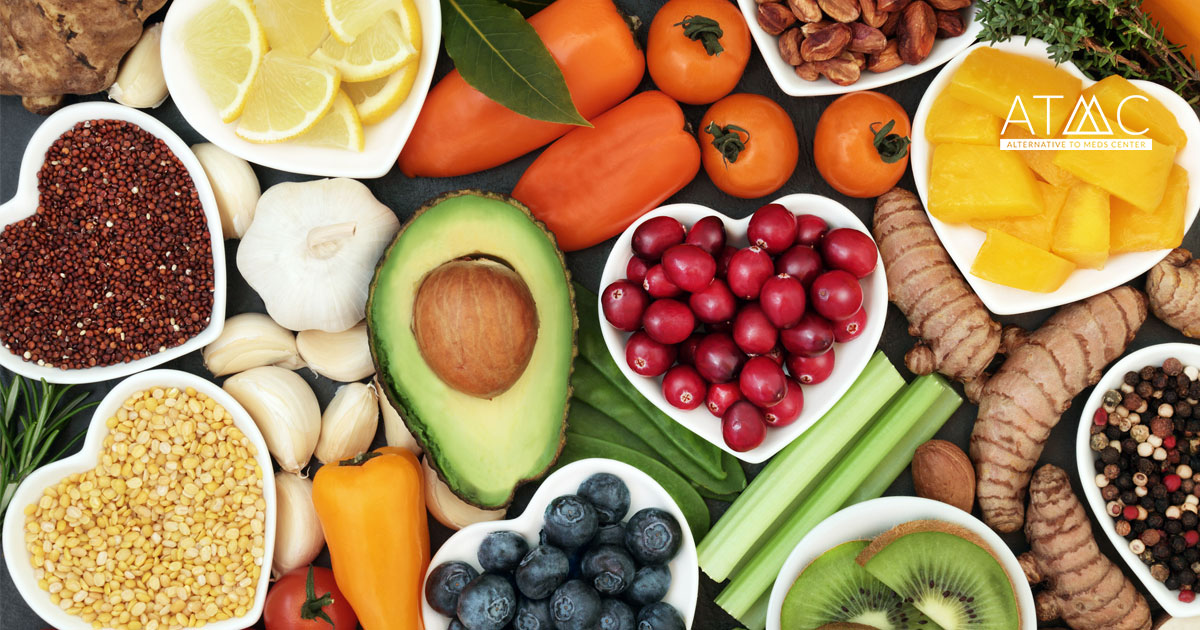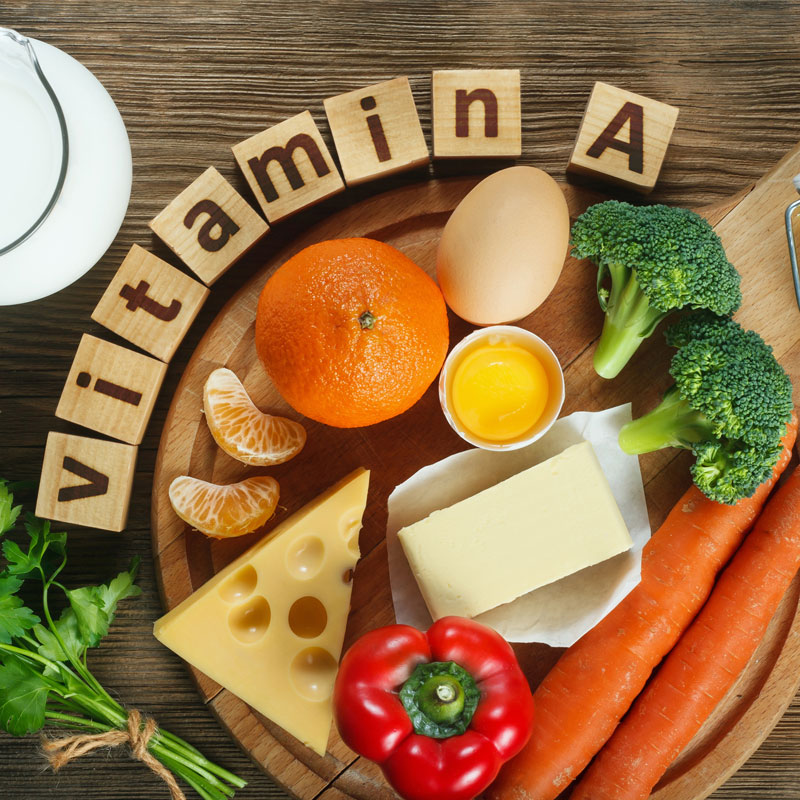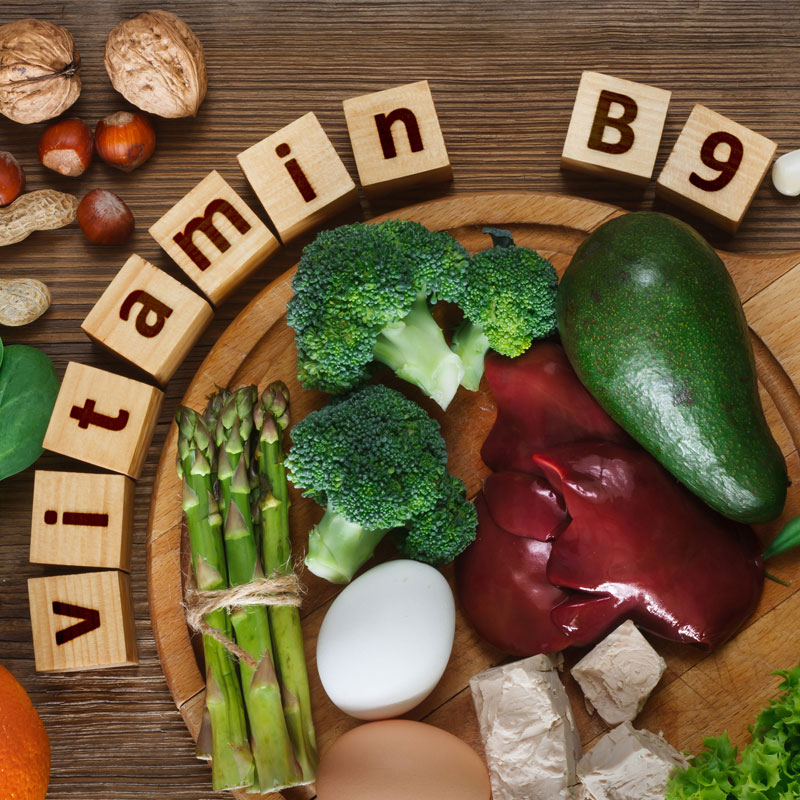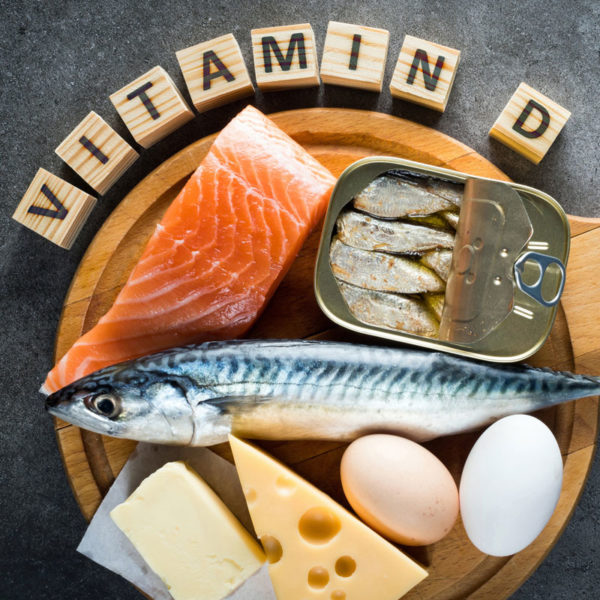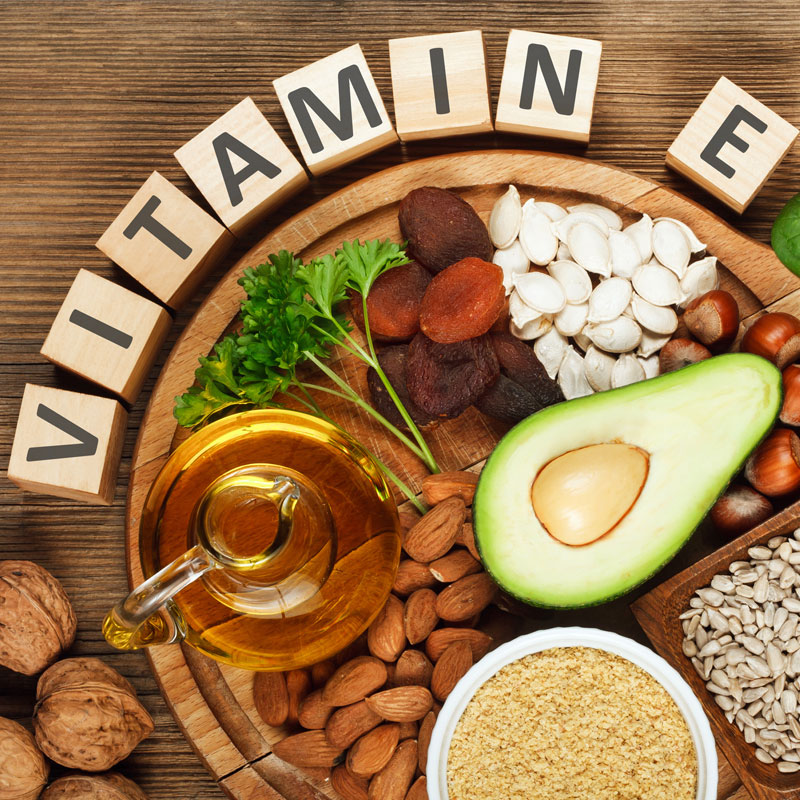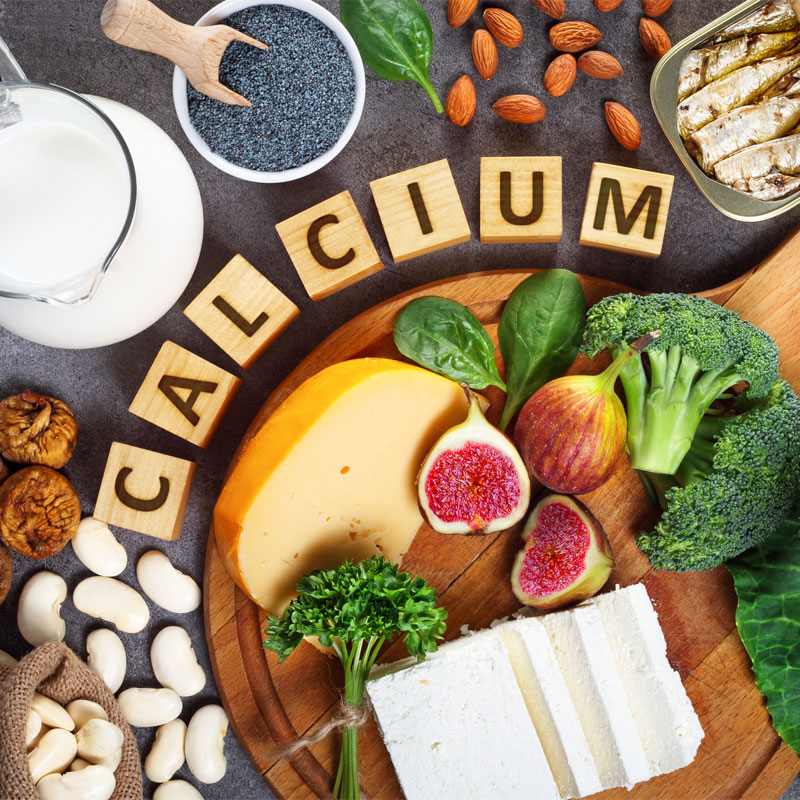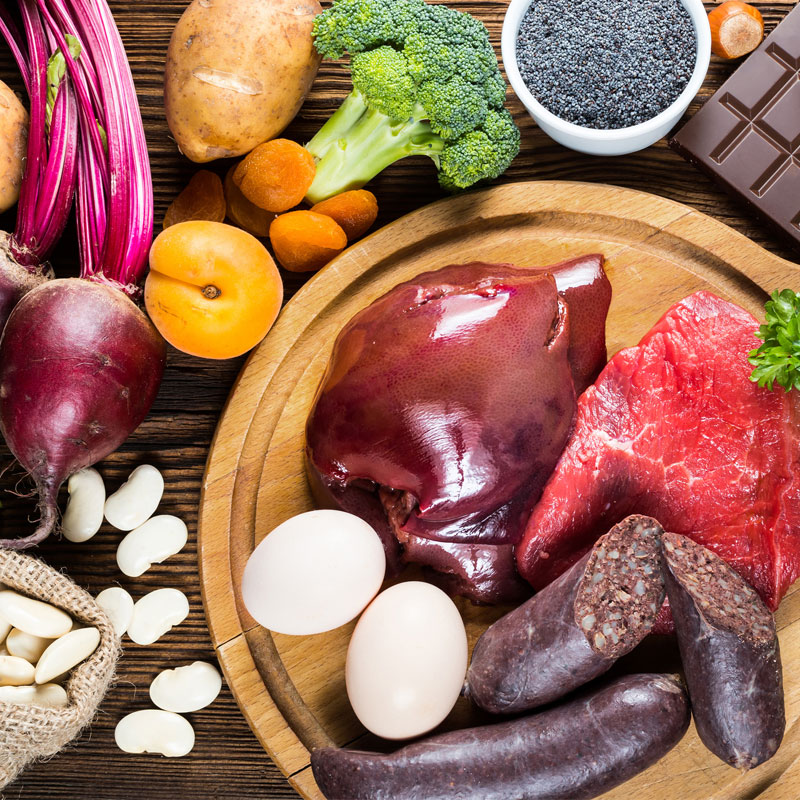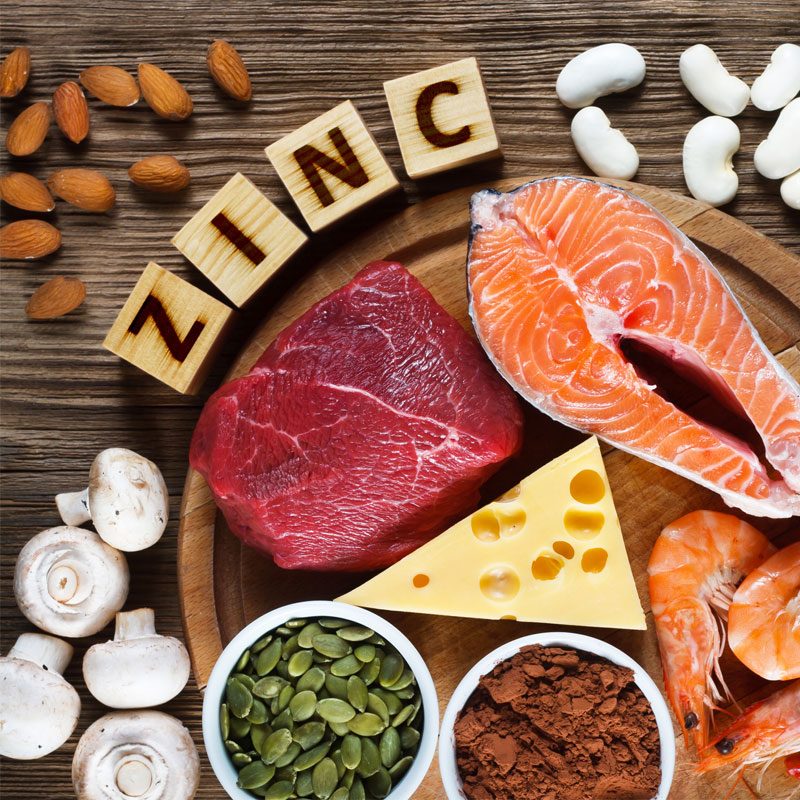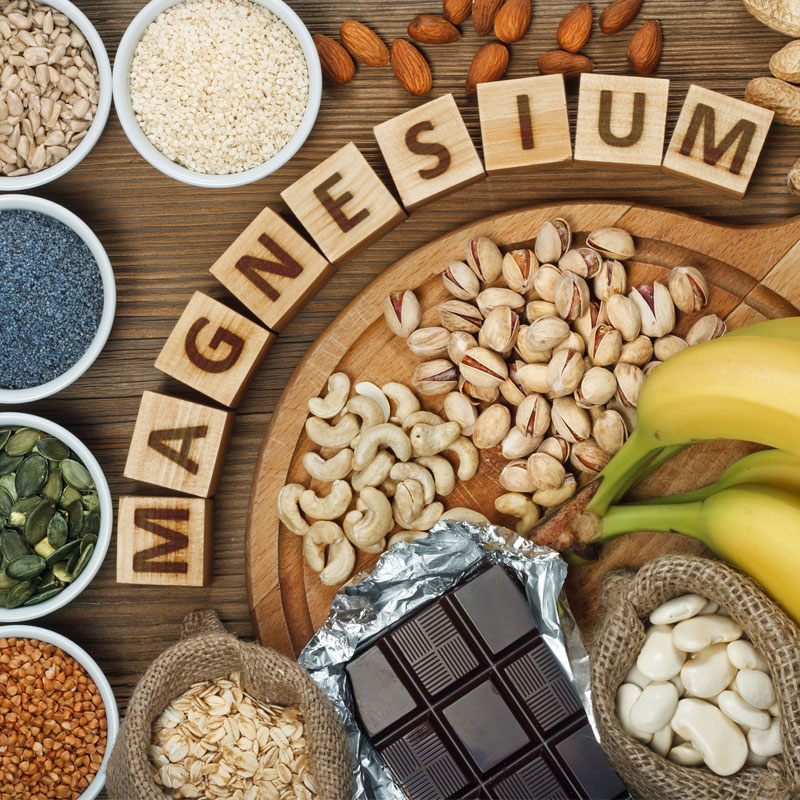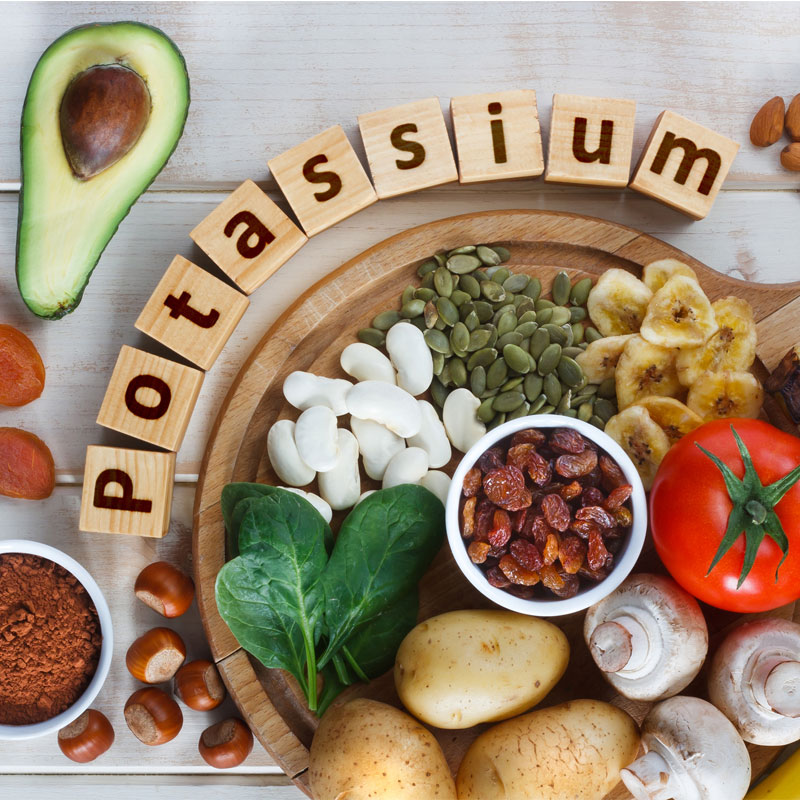How Do You Fix a Vitamin Deficiency?
Now that you know some of the effects nutrient deficiencies can have on your brain and body, you may be wondering: how do you correct a mineral imbalance? How can you address a vitamin deficiency? There are many changes you can make to ensure your body has the proper balance of nutrients.
Improved dietary diversity is the most ideal fix for vitamin and mineral deficiencies. By including the proper foods and food groups needed by your body daily, you can improve your mental and physical health. If you’ve adjusted your diet and are still struggling to achieve balance, try a supplement.
What Foods Help Mineral Deficiency?
Healthy daily eating patterns of fruits, vegetables, nuts, and whole grains are incredibly important for your health, and are linked with a much lower risk of cancer, heart disease, and strokes. That’s why there’s really no answer to the question regarding which food has all vitamins and minerals—you must consume a wide variety of foods to get all the necessary nutrients you need to maintain proper health.
Generally speaking, a healthy, nutrient-rich diet provides a solid foundation for health.. Supplements can also be helpful for filling in the gaps, which can be determined with testing.
How Can I Get Vitamins and Minerals Daily?
By understanding the major vitamins and minerals,4 their functions in your body, and the foods that contain them, you can be well on your way to a balanced diet.
Vitamin A
The purpose of vitamin A is to boost the effectiveness of the immune system, keep skin healthy, improve vision, and support reproduction and growth. Vitamin A is best known for its connection with your vision, as it is needed to produce rhodopsin, found in the retinas to help you see in the dark.
In most developed countries vitamin A deficiency is uncommon but where a deficiency is diagnosed, supplementation can remedy the situation. Testing is recommended if there is any question about adding supplements to your daily regimen.
5
Good food sources of vitamin A include:
- Orange and yellow fruits and vegetables, like carrots, mangoes, sweet potatoes, pumpkins, cantaloupes, red capsicum, and apricots.
- Dark leafy green vegetables, like spinach, peas, kale, and broccoli
- Organ meats, like liver
- Eggs
- Dairy, like some fortified milk products
- Fish
Vitamin B
There are a number of B-group vitamins, and they largely help the body use energy nutrients for fuel, and some help in DNA synthesis. Many of them cannot be stored by the body, and must instead be eaten regularly.
A B vitamin-rich diet includes a range of lean meats,(both red and white, preferably organic) whole grains, fruits, vegetables, fish, and legumes. Organic beef consumption provides high nutritional value found in the intramuscular fats including niacin and other B vitamins, plus trace elements such as zinc and copper.6 7
The eight B-group vitamins include B1, or thiamin; B2, or riboflavin; B3, or niacin; B5, or pantothenic acid; B6, or pyridoxine; B7, or biotin; B9, or folate; and B12, or cyanocobalamin.
Foods providing B vitamins include:
- B2 – eggs, lean meats, milk, and green vegetables
- B3 – lean meats, fish, legumes, whole grains, dairy, nuts, seeds, and leafy greens
- B6 – beans, bananas, spinach, and fortified cereals
- B7 – egg yolks, organ meats, meat, fish, dairy, nuts, seeds, spinach, broccoli, cauliflower, sweet potatoes, yeast, and bananas.
- B9 – fortified cereal, chickpeas, asparagus, and spinach
- B12 – fish, meat, milk, eggs, and cereal
Vitamin C
Despite its massive role in human health,Vitamin C cannot be made in the human body, and is therefore very important in a healthy diet. It is key in collagen formation, which strengthens skin, blood vessels, and bone, and is vital in repairing wounds. It’s also key in the metabolism of oxygen, iron absorption, and the fighting of infections. Scurvy is one of the results of a vitamin C deficiency, and can cause fatigue, loss of appetite, nausea and diarrhea, fever, joint pain, and bleeding in hair follicles.
Important food sources of vitamin C include:
- Fruits like oranges, lemons, limes, tomatoes, mangoes, kiwis, and strawberries.
- Vegetables like bell peppers, broccoli, brussels sprouts, lettuce, and potatoes.
Vitamin D
This vitamin is important for strong bones and muscles, and production is primarily stimulated by the sun. However, since sun exposure can also cause sunburn and other issues, you should also get vitamin D in your diet.
Foods to help with vitamin D levels include:
- Margarine and some milks
- Eggs
- Margarine and some milks
- Fortified foods like orange juice and cereal.
Vitamin E
This vitamin is an antioxidant, and also helps vision, skin, and immune function.
Some non-processed foods that contain vitamin E include:
- Egg yolks
- Meats
- Leafy green vegetables like spinach and broccoli
- Nuts and seeds like almonds, sunflower seeds, peanuts, and hazelnuts
- Healthy oils like extra virgin, sunflower, or soybean oils
- Unprocessed whole grains
Vitamin K
Vitamin K is needed for healthy bones, blood clotting, and wound healing.
It comes almost solely from your diet, and can be found in:
- Leafy green vegetables like spinach and kale
- Fruits like kiwifruits and avocados
- Some vegetable-based oils like soybean oil
Calcium
This mineral is important for strong bones, and also regulates muscle and heart function, blood clotting, and enzyme functions.
Good food sources of calcium include:
- Dairy products like milk, yogurt, and cheese
- Almonds
- Vegetables like kale, parsley, broccoli, and watercress
Iron
This mineral is needed for oxygen transport and immune system function.
Some iron-rich foods include:
- Red meat and offal
- Fish
- Poultry and eggs
- Legumes and beans
- Whole grains and certain cereals
- Nuts and seeds
- Dark leafy greens
Zinc
Zinc is a mineral essential for growth, development, and immune system function.
It can be found in many protein rich foods and some plant foods, such as:
- Red meat
- Seafood, particularly shellfish
- Poultry
- Dairy, such as milk and cheese
- Whole grains and certain cereals
- Legumes
- Nuts
Magnesium
This mineral is necessary for maintaining bone health and utilizing glucose. Magnesium also supports immune system function and regulates blood pressure.
Sources of magnesium-rich food include:
- Nuts, especially cashews
- Legumes
- Dark green vegetables
- Seafood
- Whole grains
- Chocolate and cocoa
Potassium
Potassium is needed for nerve, muscle, and heart function.
It can be found in unprocessed foods like:
- Bananas and apricots
- Mushrooms
- Spinach
- Nuts and seeds
Iodine
Iodine helps to create thyroid hormones, which control metabolism.
Food sources include:
- Dairy products
- Seafood and seaweed
- Eggs
- Some vegetables
- Iodized salt
Sodium
A small amount of sodium is needed to help the body circulate blood and tissue fluids. Salt is the main source, and it is primarily used as seasoning.
Salt can also be found naturally in many foods, like:
- Whole grains
- Meat
- Dairy products
Address Nutrient Deficiencies With a Healthy Diet
Women, adolescents, and children are all at disproportionate risk for a lack of vitamins and minerals. Individuals experiencing poor diet stemming from a mental health disorder or substance use disorder are also at elevated risk of vitamin and mineral deficiencies. While it is crucial to identify the root cause of any deficiency, eating a balanced diet will have a positive effect on your nutrient levels.
Where possible, organic food products in their least processed form are the best source for nutrients and micronutrients to avoid neurotoxic and genotoxic chemicals and residues that may tend to accumulate in the body over time.8
Eating a well-balanced diet with plenty of nutrients can improve your immune system, metabolisms, physical and mental development, and optimize recovery from substance use disorder. That’s why Alternative to Meds Center prioritizes nutrition. For more information about how to stay healthy during recovery, contact us today.
